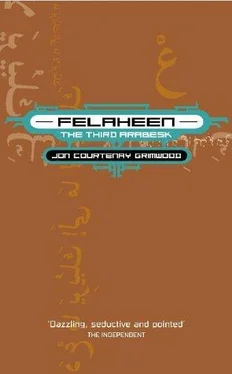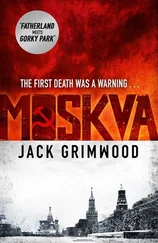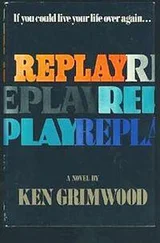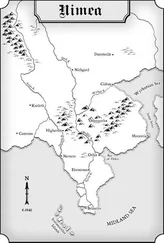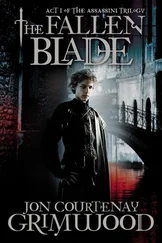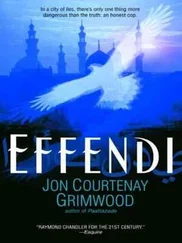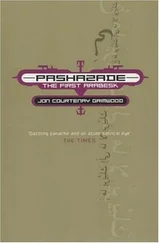All of it was black tek. All of it shipped in contravention of numerous UN resolutions banning the sales to Ifriqiya of weapons-grade technology.
"Those hunters," said Raf.
"Georgian Spetsnaz ."
"What about the boar?" Hani demanded.
"Fake," interrupted the Emir. "Eugenie de la Croix's idea." He nodded to Hani and smiled at Murad, who just looked at him, eyes wide, then glanced between the Emir and Raf and scowled.
"You think we look alike," Moncef said. It wasn't a question.
The small, dark-eyed boy nodded but Hani just shook her head.
"No," she told the Emir, "you look way older."
"It's flu," Lady Maryam said when Raf finally asked.
"You're sure?"
"Of course, I'm sure." Lady Maryam's voice was sharp.
"How do you know?" Raf demanded. He'd already seen the whole farmhouse and apart from two large rooms upstairs, one used by the Emir, with another on the ground floor now claimed by Lady Maryam, meaning Major Gide had to share the dorm with her troops, that was it. Apart from the hall, kitchen and cellar. The Spetsnaz slept at a house in the village. One of the major's jumpsuited teenagers did the cooking. There was no one else and nothing that looked like a surgery. As it was, Raf and the others were going to have to make their way back to Tunis that night because anything else presented too much of a risk.
"Major Gide is also his doctor," Lady Maryam said shortly. "I'm surprised you didn't know that."
They were back in the hall by the fire. The darkness outside was such that stars bled diamonds across black velvet through the one window left uncurtained. The longer he stayed, the jumpier Lady Maryam became, her politeness becoming ever more brittle by the minute. She'd already added Murad to the list of things at which she was unable to look, banishing Hani and her cousin to the kitchen.
"I should go," Raf said.
"Yes," agreed Lady Maryam and as she clapped her hands a wattle of flesh on her wrist quivered. She was old, Raf realized. The way the Emir was old. Made older by bitterness and four decades of marital exile. All she had on her side was that her son had been born first.
"I'll have someone fetch the children," Lady Maryam said.
Raf nodded. "That would be kind," he replied, knowing that kindness had nothing to do with it. "But first I need to ask the Emir some questions . . . That's why I'm here," Raf said, when the woman looked at him blankly. Turning for the stairs, he was irritated to hear Lady Maryam's heavy steps following behind.
"I need to see him alone."
"He's my husband," said Lady Maryam.
And my father, apparently , Raf said. But he said it under his breath.
The huge room was hot and dark. The smell of vomit obvious. A glass of water stood on a table beside a hardly touched bowl of couscous. Most of what had been eaten splattered the floorboards beside the bed.
Within the round belly of a wood-burning stove flames flickered. On a mattress, leaning back against his pillows lay the old man, his pillowcases tallowed with sweat. A window that shouldn't have been open was. So it was just as well that Lady Maryam remained outside, kept from entering by a shout that reduced her husband to a coughing fit.
"She keeps cooking me food," the Emir said tiredly when his breath was back. He smiled at Raf's surprise. "Don't worry," he added. "I make her eat a spoonful of everything first. She's only here to look after me because she knows how much I hate it."
It was Raf's turn to smile.
"So tell me," said the Emir, "before we talk about things that matter. What did you do to get her wretched son so upset? I've had Kashif on the line swearing undying loyalty and warning me not to trust you." The Emir sounded amused. "What did you do, besides tell him you were now Chief of Police? Which, I have to say, was news to me . . ."
"I didn't say that at all," said Raf. "Merely that I was investigating the attack. And I suggested, obliquely, that he might have hired the Sufi."
"Do you think he did?"
"That depends," said Raf, glancing round the room until his gaze reached an angular chair made from pine and painted in a brown so deep it looked black, "on who else would like to see you dead."
"Paris, Washington, Berlin. Half the mullahs in Kairouan. That woman outside. And then there's you . . . Feel free to sit," he added as if he thought Raf was angling for permission rather than working out exactly what worried him about the Emir's room.
"Why would I want you dead?"
Moncef's only answer was to glance at a ring resting between a revolver and a copy of the Quran. The ring was gold, set with bloodstone and a swirl of script; the tughra engraved into its surface was that found on every fifty-dinar coin for more than forty years.
The gun was a Colt .38 with pearl grips.
"There's more to ruling than owning a ring," Raf said.
"Not much," said the Emir, his laugh a foxlike bark, carrying more pain than amusement. "Especially if you have the other two as well. You don't really like me, do you?"
"Probably more than your wife does," Raf said sourly. "She tells me this is the first time she's ever visited . . ."
"First and last," said the Emir. "This house was bought for Eugenie. Government money but her name on the deeds. She was many things, that woman. Only one of them my chief of intelligence." Unashamed tears were in his eyes. Or maybe just unnoticed.
"You were lovers?" Raf said. It was barely half a question.
"That's one way of describing it."
"She said you weren't."
He smiled sadly. "Eugenie kept her life in compartments," he said. "Jobs that people knew about. Those they didn't. Her personal life was one of the smallest. Maybe the least visited. Sometimes Gene needed to forget what she kept there . . . You see," he explained, "sleeping with me was probably the only unprofessional thing Gene ever did in her life. And all I did was get her killed . . ."
The Emir gestured to the table beside his bed where the ring lay between the book and the gun. "Make your choice," he said, "and learn to live with it. That's all any of us can do."
A glow from the wood-burning stove gave the Emir's face the look of a fallen angel, broken and beautiful; haunting in its promise and cruel beyond imagining. Behind the words was a desolation so deep it went beyond Raf's ability to understand. And in that moment he finally believed something his mother once said, which in itself was unusual.
His father was certifiably insane. She'd been holding a vodka when she said this. Her anger filtered through a freebase crash and the bottom of a Bohemian shot glass. Somehow they'd moved from filming Arabian wildcats as they learned to hunt, her latest project, to Raf's father, the man she refused to talk about. Of course, back then Raf thought she'd been talking about the Swedish hitchhiker.
"Why come now?" the Emir said into Raf's silence. "When you wouldn't come before?"
"I was busy."
"Having your garden rebuilt with someone else's money . . . Going to a job you didn't do . . . What changed?" asked the Emir, his eyes watching from within the red shadows of the stove. The very fact he hadn't asked why Raf wore shades in a room that sweltered in near darkness told Raf that Eugenie's original suggestion was right and he had been wrong. Whatever had been done to Raf, his mother had not made those choices alone.
"What changed . . ." The answer died on Raf's lips. The snide, the furious and the easy comebacks all wiped by the obvious. "I did," said Raf.
CHAPTER 34
Thursday 3rd March
Dr. Pierre smirked from the side of a barn, his mouth supercilious above the fading remains of a silk cravat. A lifetime of rain had worn his luxurious sideburns to a ghost of their former glory. A jagged scar split his chin where a builder had repaired cracked brickwork with no thought for the advertising mural beneath.
Читать дальше
